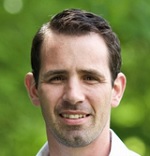 |
| Avitide's Tillman Gerngross |
When serial biotech entrepreneur and Dartmouth scientist Tillman Gerngross co-founded Avitide in early 2013, he had some specific ideas on how to quickly capitalize on a new-and-improved approach to purifying therapeutic proteins that would make it easier for industry partners to manufacture a more potent drug. Today, the bioengineering professor and his team at Adimab spinout Avitide nailed down the financing that they say will take the Lebanon, NH-based biotech to profitability in the next 12 to 24 months.
At $7.6 million, the venture round brings Avitide's total raise to $12.5 million, according to CEO Kevin Isett. That's not the kind of money that will register anywhere close to the top 10 for what is shaping up as a record year in venture circles, but Gerngross is known for capitalizing as early as possible on his ventures, a track record which includes the antibody developer Adimab (a 2010 Fierce 15 company), the small biotech Arsanis and his glycoengineering startup Glycofi, which Merck ($MRK) bought 9 years ago for $400 million.
"We've raised a tenth of what a typical biotech raises," notes Isett in an interview with FierceBiotech. And like other Gerngross-inspired enterprises in his own personal cluster in Lebanon, the company has relied on its relationships in the industry to build the business while Isett flies "a little bit under the radar."
The money for this C round was drawn from the likes of NeoMed Management, with participation from Polaris Partners, OrbiMed Advisors, SV Life Sciences, Borealis Ventures, N5 Investments, Hoyoung Huh, Angeli Parvi, and John Ballard. And Isett says that that should cover the last of the red ink as the company builds up its (very private) list of clients in the biopharma world.
 |
| Avitide CEO Kevin Isett |
In the early days, says Isett, Avitide was carefully focused on early-stage research, looking to devise protein therapies that had a better shot at making it through the clinic and on into commercial scale quantity. "To our surprise," he adds, "we've seen a fairly even distribution" through clinical stages and into manufacturing spheres.
The challenge, as Gerngross outlined early on, was cutting down on multiple chromatography steps without requiring an affinity resin based on recombinant proteins.
"We can take an onerous 4 to 5 step process and turn it into a 1 to 2 step process," says the CEO. Done right, he says, a biopharma company can streamline drugs for manufacturing, cutting down on costs while amping up potency and safety.
While Avitide started on therapeutic proteins, a big field, the company has also been building out its tech platform to cover antibodies (a natural extension for a company close to Adimab) as well as gene therapies and vaccines. Just don't ask anyone at the company what specifically distinguishes their work.
Says Isett: "The secret sauce is exactly that: secret."
The company, he adds, has 17 staffers now and plans to up the team roster to 20 by the end of this year.